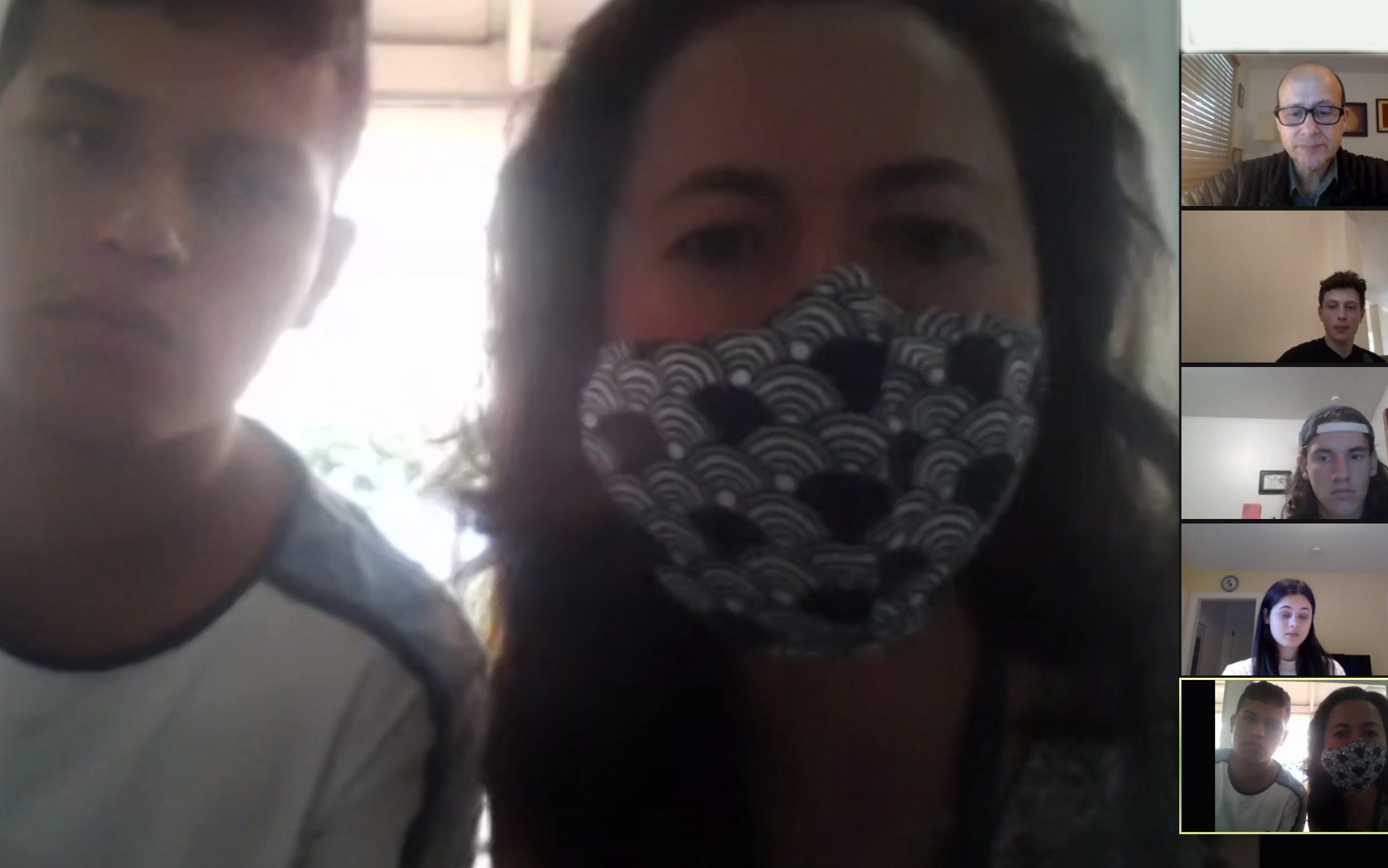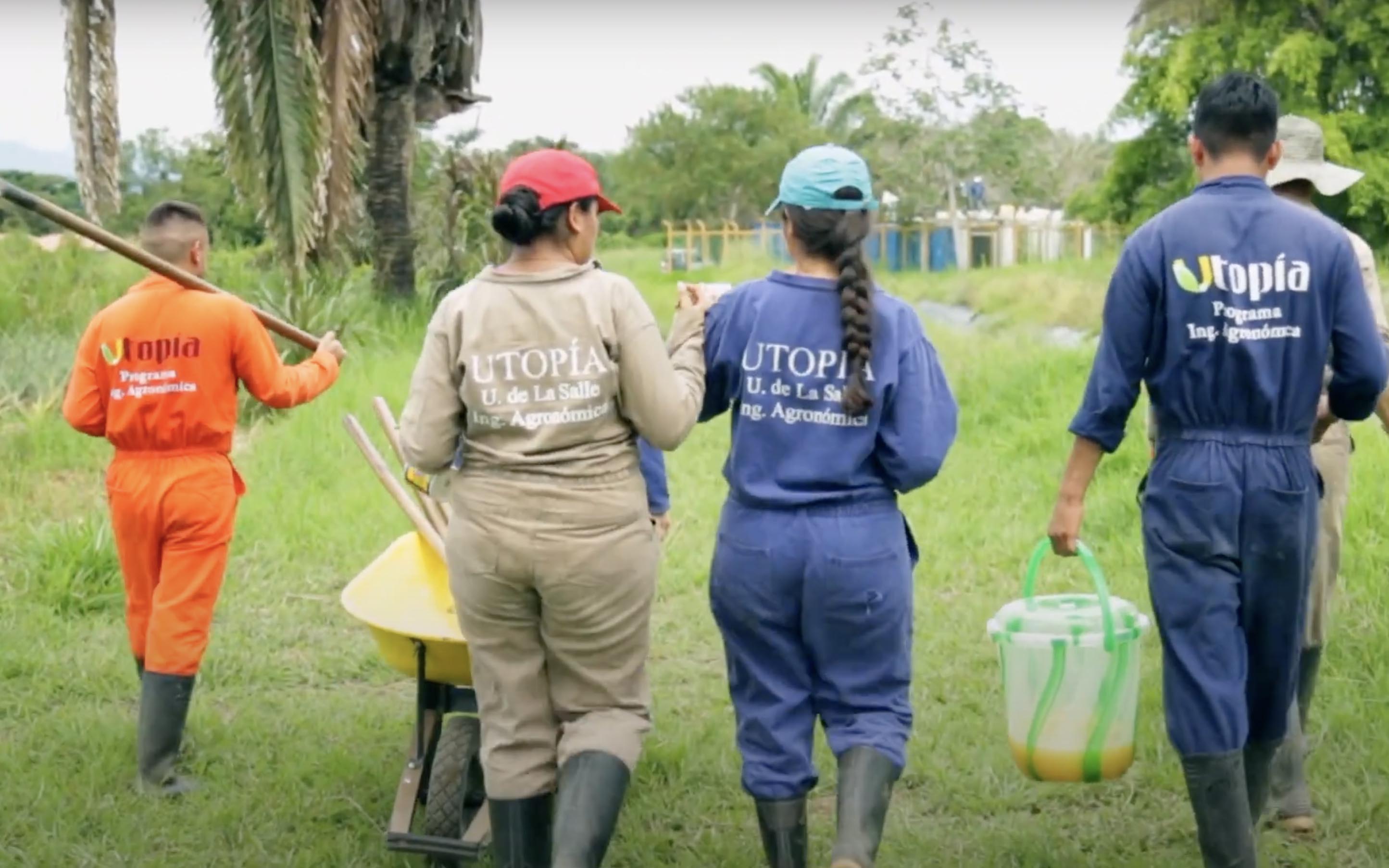- News
Bringing Language to Life in AP Spanish

AP Spanish Teacher Ernesto Sanchez brings language to life in his classes. A perfect example is Friday's Proyecto Utopia conference.
The program is made of select full scholarship students from Colombia's La Universidad de la Salle. A requirement to enter the program is that they must come from rural areas and have been impacted from the South American nation's decades long social and political violence. It focuses on the education of young students who not only are poor, but have been the victims of violence in their communities. "Their families have been suffering from violence caused by different groups involved in the Colombian political and social conflict – guerrillas, paramilitary groups, and even government forces. Many of them have been displaced due to political violence," explains Sanchez. "In this case, students don’t choose the program, but they are selected by a variety of community organizations who take into account their preparation, determination, and leadership potential. Students come from all corners of the country to become Agricultural Engineers and social leaders. Once students finish the program, they are required to return to their communities to develop an agricultural project and promote entrepreneurship and social change."

In Friday's live virtual session, Sanchez's AP Spanish students heard firsthand from a student and teacher. Students are in awe of the connection between Yopal, Colombia and Redmond, U.S.A. "I love AP Spanish Language and Culture because it has introduced me to a new perspective of the language. In the past, I've focused on the grammar, vocabulary, writing, and speaking aspects of Spanish, however we hadn’t covered aspects of the culture like the depth we do in AP Spanish," says Olivia O. ('22). This class encourages me to experience Spanish in real-world scenarios and learn about the context/meaning behind the language. Anyone can memorize vocabulary words or learn when to use certain tenses, but taking the time to learn about the culture really enriches the experience and gives the language purpose."
Sanchez agrees and says that the lesson and stories heard today go beyond the classroom. "By interacting with the actual protagonists, my students get a much more real sense of what a program like Utopía means in the context of an armed conflict that have lasted for decades," says Sanchez. "This program will have a face and a voice my students will never forget, and they will gain a new perspective on the power of education in challenging and complex environments. Additionally, this will be an opportunity for my students to use their oral communication skills in a formal and very real scenario."
Click here to learn more about Projecto Utopia.
